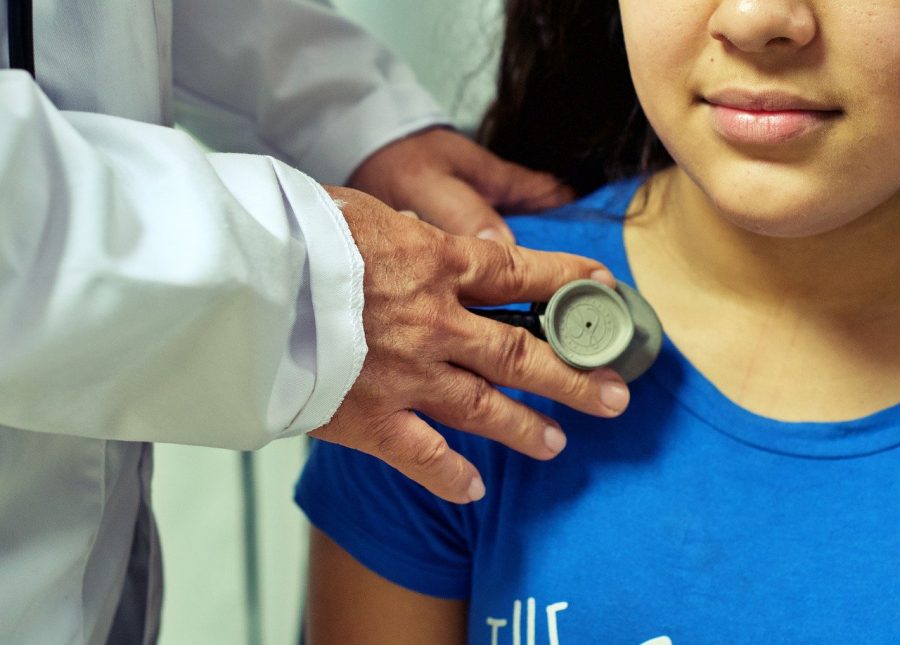
Key to Future Ready Collier’s guiding values is an understanding that there are many intersecting contributors to students’ success in the classroom. Among them, children who are struggling with their physical or mental health will struggle to learn. It is important to create opportunities for educators and healthcare providers to join forces. Future Ready Collier hosted a virtual panel discussion as a part of its regular Lunch & Learn series to address how education and healthcare services in Collier County are coming together in support of students, and how we as a community can participate.
Panel Participants
Panelists included Kimberly Kossler, the Health Officer of the Florida Department of Health in Collier County; Dr. Todd Vedder, a practicing physician with Lighthouse Pediatrics of Naples and a community advocate for children’s health; and Dr. Courtney Whitt, a psychologist and the Director of Integrated Behavioral Health for Healthcare Network. Future Ready Collier’s Early Development Goal Group co-chairs were central to the presentation’s planning and success. Dr. Dayana Philippi of Literacy Volunteers of Collier County and Michelle Starr of Collier County Public Schools introduced the speakers and provided organizational leadership, while Beth Housewert of the Golisano Children’s Museum of Naples facilitated the conversation.
Social Determinants of Health
Many topics were addressed during this wide-ranging and interactive dialogue. The speakers began by defining social determinants of health—the social, physical, and economic environments that help shape indicators of health—and the role they play in both individual and population wellbeing, and for people of all ages. Importantly, childhood stresses, including those formally considered adverse childhood experiences, otherwise known as ACEs, have long-term effects. Children who are exposed to trauma may experience difficulty throughout their lives in how they are able to form personal attachments, complete education, maintain careers, and earn income. These children, in adulthood, are also more at risk for poor physical health.
School Attendance Matters
Dr. Whitt pointed out that school attendance is an early vital sign of how children are doing, and is significant even at the earliest stages of learning. Absenteeism as soon as the early learning years leading to kindergarten can set a negative precedent, and begin to widen the gap of health disparities. At Healthcare Network, Dr. Whitt and her team use an integrated model of care to ensure that physical and behavioral health go together. When children come in for well-child visits, providers sensitively assess their whole-person wellness.
The Safe, Stable Nurturing Relationship
Dr. Vedder introduced the framework of the safe, stable, nurturing relationship. This has been identified as crucial to helping children flourish. Pediatricians, in Dr. Vedder’s view, are important buffers in detecting when children are potentially not receiving all the support they need, or are otherwise facing challenges. Pediatric healthcare providers are responsible for conducting health and wellness screenings, and making appropriate referrals to support services. It is important to use information like that to empower families. Children who benefit from close engagement with caring adults are more likely to themselves grow up to be successful, caring adults. Dr. Vedder quoted the respected childhood behavior researcher Urie Bronfenbrenner: “Every child needs at least one adult who is irrationally crazy about him or her.” Meaning, children are able to best grow when supported and loved by consistent connection with the adults around them.
This connection is most commonly between the child and their parent or parents, but any close adult can be positively influential. Time spent reading, talking, engaging, playing, or simply even being together can leave lasting, meaningful impressions. Adults are encouraged to be strong role models for the children with whom they interact, so that children see what is possible to achieve. This can relate to the two-generation approach to education, whereby children and adults within the same family unit are participating in formal learning.
Resources to Help
To help their children, parents and other caregivers need to have access to the right resources and services. Kossler, Vedder, and Whitt each underscored how important it is to empower families to feel like they have the tools and support to actively participate in their children’s, as well as their own, wellbeing.
Fortunately, Collier County is home to many caring providers who work closely with community agencies and the schools to deliver those resources. It is important, not just to meet school registration requirements, but for tracking all developmental milestones, for children to receive appropriate, timely check-ups. Community healthcare providers like Healthcare Network, which is designated as a federally qualified health center and therefore sees all patients regardless of their ability to pay, offer discounted and sliding fee scale services. Further, Healthcare Network, the Department of Health, private practices like Lighthouse, and many more caring organizations collaborate with schools and nonprofits to ensure information is shared with parents about childhood health.
Members of Future Ready Collier’s network, including the Department of Health, Lighthouse Pediatrics, and Healthcare Network, all recognize and appreciate the close relationship between education and health. Future Ready Collier’s overarching goals—to help all children enter kindergarten ready, grow during their learning years, and graduate high school with a plan—rely on students receiving all the necessary help along the way.
Prepared by Caroline Ridgway of C1B1 Communications.
